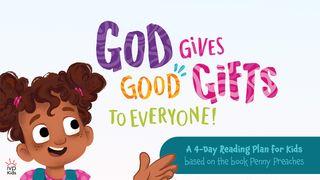From Lament to Hope: Wellbeing and Happiness in the Psalmsنموونە

Psalms 1 and 2: The Theory and Practice of Happiness
The psalms are a great school for prayer; they acknowledge all human emotions and experiences, however raw, and turn them into prayer. We often hear that this honest way of praying is a good thing. Yet while it isn’t unusual to acknowledge that a range of negative emotions, and their impact on our mental health, are part of the life of faith, we can find it harder to acknowledge more positive longings, like our desire for happiness—and the hurt that we carry when it eludes us. When we think of mental health and wellbeing, often we measure where we are in comparison to where we would like to be, or what we think life should be. Our expectations—whether they are truly ours, or those we carry from culture, friends, or family—can collide painfully with reality, and the bigger the gap between expectations and reality, the harder the journey we have to take.
Our mental picture of happiness and wellbeing impacts how we feel about ourselves and the world when we struggle. The question is, what shapes this picture? The psalms have much to say about it. The opening word of the Psalter is “happy;” not “blessed,” as is sometimes translated, but “happy.” It is then followed by twenty-five other “happy are those” sayings throughout the psalms. Happiness is a worthy subject for meditation for people of faith.
Psalm 1 opens with a grand vision of happiness. The happy life is a fruitful life—a tree that yields fruit. The happy life is a life oriented towards the wellbeing of its community, a life shaped by God. Do well and it will go well with you. It is a grand vision—and one that many of us may struggle with; life isn’t like that! Bad things happen to people who follow God and seek to nurture others—which is exactly what the next psalm says: “Happy are those who take refuge in God,” because the world is a harsh place. In just two chapters, the psalms place before us the dilemma of human happiness and wellbeing: happiness is something we can nurture through good living with God, and yet it can never be guaranteed. We live in an “in-between” place, called to a good life with its benefits while experiencing the reality of a broken world, so that wellbeing and happiness are inevitably fragile.
What do you think a good, happy life in a broken world looks like?
کتێبی پیرۆز
دەربارەی ئەم پلانە

Wellbeing is a popular word today, expressing the desire for a good life in an uncertain world. For those who seek wellbeing or struggle with a lack of wellbeing, this five-day plan, written by Sanctuary Ambassador Isabelle Hamley, explores what wellbeing and happiness look like within the world of Scripture. Additionally, it offers reflections on how we can nurture wellbeing among our communities.
More









